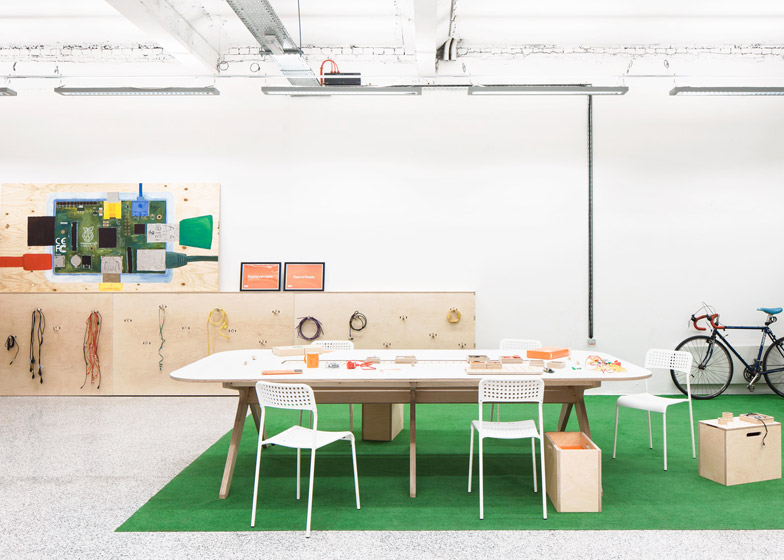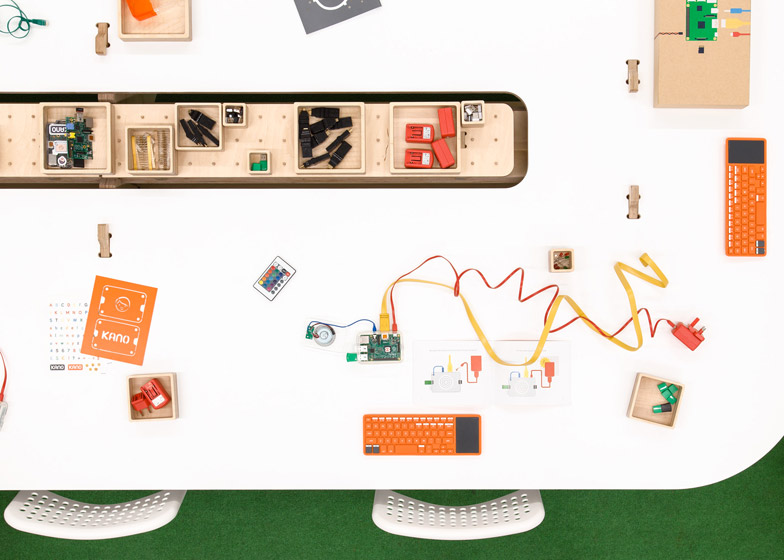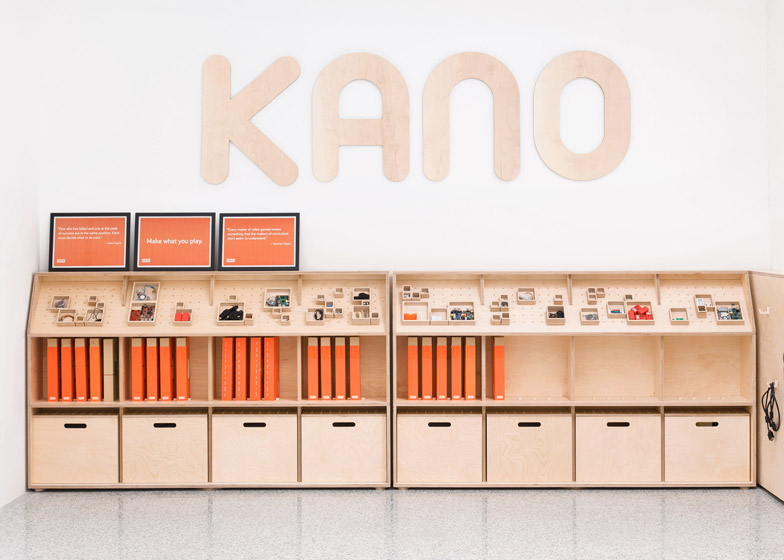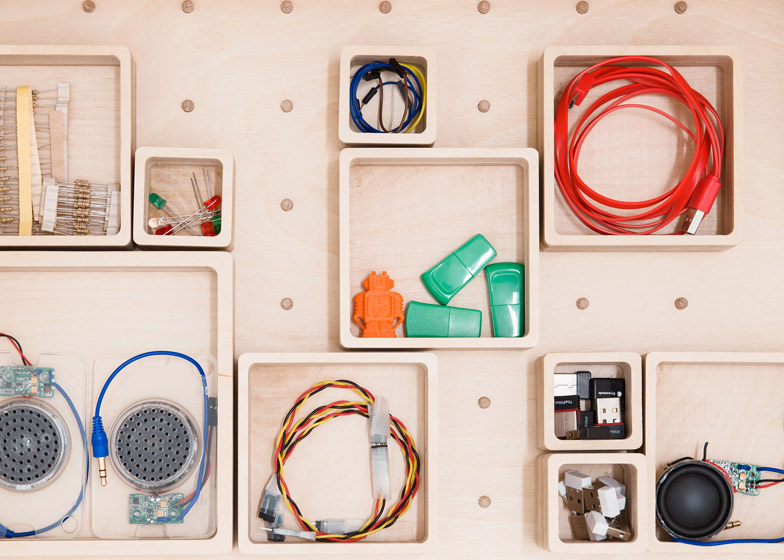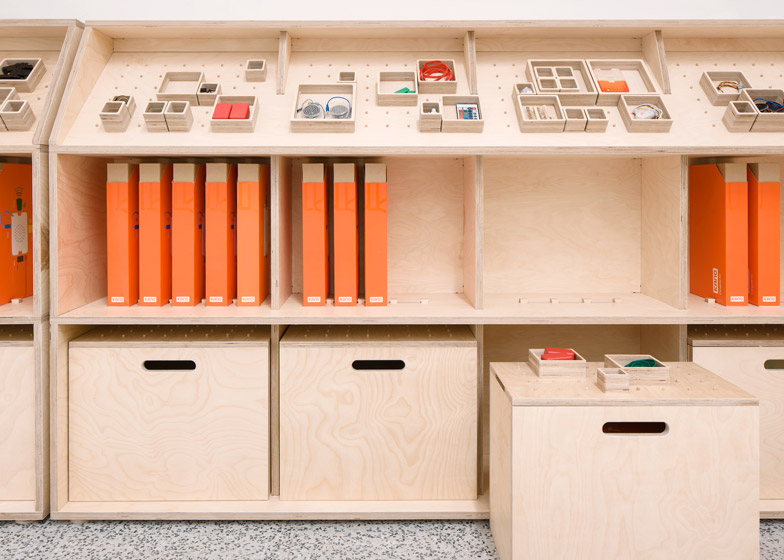Open-source furniture company Opendesk has created customised workspace fittings for self-build computer brand Kano (+ slideshow).
Desks and storage units were manufactured using computer numerically controlled (CNC) milling, based on flat-pack designs from Opendesk's online platform of downloadable products.
The company worked closely with Kano to customise designs to meet the individual needs of the office, including a series of shelves that double up as a display system for the components that make up Kano's computer kits.
Pieces from the kits are also displayed on a demo table at the centre of the workspace, and wall panels can be rearranged according to the requirements of different visitors.
Individual workspaces are provided by desks that include under-table storage as well as a series of grooves that can house phones and tablets.
Designed as a set that can be completely self-built, Kano kits are used in schools across the UK, Europe, Asia and Africa to teach children and young people the basics of coding and technology. Kano was launched in 2013 after raising more than $1 million (£638,000) in worldwide donations on crowdfunding platform Kickstarter.
As well as providing office furniture, Opendesk partnered with the brand to host a hackday that explored the possibilities for incorporating the internet of things (IoT) into the platform's furniture designs. The company is now testing the possibilities for including LED notification screens and wireless charging in future products.
Through its digital platform, Opendesk sells products that can be downloaded and produced by makers anywhere in the world. The company has relationships with 200 makers in 32 different countries, allowing consumers to connect with local manufacturers, and designers to share their creations globally without worrying about distribution.
In June 2015, the company provided office fittings for the Manor Works community workspace building in Sheffield, which was also designed by Opendesk founder Joni Steiner. Charity Greenpeace, design agency Revolver and venture capital investors Spark have also installed the platform's open source furniture in their offices.
"We believe that a new industrial revolution is just around the corner," Opendesk founder Joni Steiner told Dezeen. "As online sharing platforms, open-source models, digital manufacturing technologies and the maker movement develop, there is an opportunity to rethink how goods and services are made and distributed on a global scale."
Responding to the growth in social marketplaces including Airbnb, Nimber and Etsy, Opendesk's work aims to move the "collaborative consumption" trend onto collaborative production.
"We think that building the infrastructure to help facilitate collaborative production – socially-conscious and democratised – will enable a new and transparent understanding of how everyday products are made – through a process of 'Open Making'," Steiner said.
"As power shifts from the old economies, we are forced to consider new possibilities. Through emerging, connected technologies we can begin to imagine a more socially, environmentally and economically conscious model - a democratised means of production fit for the 21st century… and in the process, we have the chance to locally reconnect with the act of Making," he added.
In a piece for Dezeen, Justin McGuirk discussed the merits of open-source design and questioned whether it really heralds a new era for the furniture industry.
Others have more readily embraced the movement, with Studio Swine sharing the design for its Open Source Sea Chair, and Design Methods filling the Small House Big Door boutique in Seoul with open-source furniture.
Photography is by Rory Gardiner.

